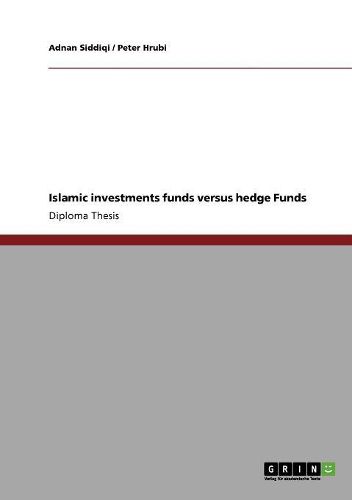Readings Newsletter
Become a Readings Member to make your shopping experience even easier.
Sign in or sign up for free!
You’re not far away from qualifying for FREE standard shipping within Australia
You’ve qualified for FREE standard shipping within Australia
The cart is loading…






Diploma Thesis from the year 2008 in the subject Business economics - Banking, Stock Exchanges, Insurance, Accounting, grade: Sehr gut, University of Vienna (Universitat Wien), course: Macro Economics and Finance, 74 entries in the bibliography, language: English, abstract: The literature discusses Islamic investment funds and hedge funds as isolated issues. At present not much work is known, comparing these two very prominent alternative investment forms. This thesis attempts to fill this gap by providing a first insight into both and also tries to answer the following question: Can Islamic investment funds catch up with hedge funds? For this, the thesis compares Islamic investment funds and hedge funds on the basis of different factors, trying to answer three sub questions: What are the advantages and disadvantages of each? Are there differences and/or similarities between the two? How can an investment portfolio including both be balanced? As will be seen throughout the thesis, Islamic investment funds provide a handfull of advantages over hedge funds, even enabling the former to outperform the latter. Hedge funds rely mainly on gaining advantage through market inefficiencies, hedging the market risk through short-term opportunities. This construction puts the fund manager into a high risk position with high profit potential. Despite investment restrictions under Islamic law, a fund manager is not prohibited from facilitating hedge funds by these restrictions. The main difference is that Islamic investments offer more risk control by cooperative arrangements. This characteristic enables an investor to cover the risk of hedge funds by investing in Islamic investment funds. Nevertheless, such differences raise the issue of whether it is sensible to invest solely in Islamic investment funds or hedge funds. […]
$9.00 standard shipping within Australia
FREE standard shipping within Australia for orders over $100.00
Express & International shipping calculated at checkout
Diploma Thesis from the year 2008 in the subject Business economics - Banking, Stock Exchanges, Insurance, Accounting, grade: Sehr gut, University of Vienna (Universitat Wien), course: Macro Economics and Finance, 74 entries in the bibliography, language: English, abstract: The literature discusses Islamic investment funds and hedge funds as isolated issues. At present not much work is known, comparing these two very prominent alternative investment forms. This thesis attempts to fill this gap by providing a first insight into both and also tries to answer the following question: Can Islamic investment funds catch up with hedge funds? For this, the thesis compares Islamic investment funds and hedge funds on the basis of different factors, trying to answer three sub questions: What are the advantages and disadvantages of each? Are there differences and/or similarities between the two? How can an investment portfolio including both be balanced? As will be seen throughout the thesis, Islamic investment funds provide a handfull of advantages over hedge funds, even enabling the former to outperform the latter. Hedge funds rely mainly on gaining advantage through market inefficiencies, hedging the market risk through short-term opportunities. This construction puts the fund manager into a high risk position with high profit potential. Despite investment restrictions under Islamic law, a fund manager is not prohibited from facilitating hedge funds by these restrictions. The main difference is that Islamic investments offer more risk control by cooperative arrangements. This characteristic enables an investor to cover the risk of hedge funds by investing in Islamic investment funds. Nevertheless, such differences raise the issue of whether it is sensible to invest solely in Islamic investment funds or hedge funds. […]